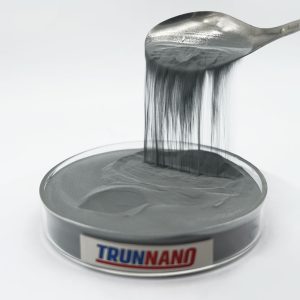Professional and high-quality metal alloys, ceramic products and concrete additives | RBOSCHCO
PRODUCT PARAMETERS
Description
Overview Of 3D Printing Alloy Spherical Titanium Powder
3D Printing Alloy Spherical Titanium Powder is a spherical titanium alloy powder designed specifically for 3D printing. The main component is titanium, which may contain other alloying elements, such as aluminum, vanadium, etc., to improve its mechanical properties. For spherical powders, this morphology helps improve the powder’s flowability during the printing process, reduce printing defects, and promote uniform powder accumulation.
Titanium and titanium alloys have excellent strength-to-weight ratios, making them an ideal choice for the aerospace, medical, and automotive industries. Titanium and its alloys can resist corrosion in many environments, including salt water, chemical media, etc. Titanium alloy can maintain its performance at high temperatures and is suitable for high-temperature applications. Titanium alloys are widely used in the medical field because they are compatible with human tissues and do not produce harmful reactions.
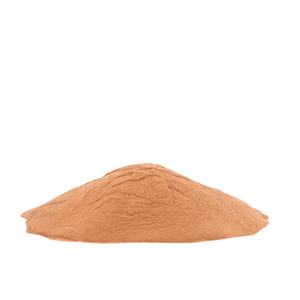
(3D Printing Alloy Spherical Titanium Powder)
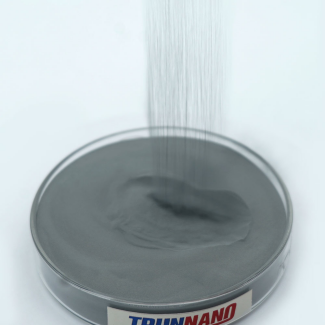
3D Printing Alloy Spherical Titanium Powder
Features of 3D Printing Alloy Spherical Titanium Powder
| 3D Printing Alloy Spherical Titanium Powder Properties | |
| Other Names | Titanium Powder |
| CAS No. | N/A |
| Compound Formula | Ti |
| Molecular Weight | N/A |
| Appearance | Gray metallic solid in various forms (ingot, tubing, pieces, powder) |
| Melting Point | N/A |
| Solubility in water | N/A |
| Density | NA |
| Purity | N/A |
| Particle Size | 0-20μm, 15-45μm, 15-53μm, 53-105μm, 53-150μm, 105-250μm |
| Boling point | N/A |
| Specific Heat | N/A |
| Thermal Conductivity | N/A |
| Thermal Expansion | N/A |
| Young’s Modulus | N/A |
| Exact Mass | N/A |
| Monoisotopic Mass | N/A |
| 3D Printing Alloy Spherical Titanium Powder Health & Safety Information | |
| Safety Warning | N/A |
| Hazard Statements | N/A |
| Flashing point | N/A |
| Hazard Codes | N/A |
| Risk Codes | N/A |
| Safety Statements | N/A |
| RTECS Number | N/A |
| Transport Information | N/A |
| WGK Germany | N/A |
Parameter table of 3D Printing Alloy Spherical Titanium Powder
Here is a parameter table of 3D printing alloy spherical titanium powder:
| Parameter | Typical Value Range |
|---|---|
| Purity | ≥99.5%2 |
| Particle Size | 0-20μm, 15-45μm, 15-53μm, 53-105μm, 53-150μm, 105-250μm |
| Oxygen Content | ≤1100ppm (for TC4)1 |
| Flowability | Data varies, but generally good due to spherical shape |
| Bulk Density | 2.35g/cm³ (for TC4 15-53μm)1 |
| Tap Density | 2.6g/cm³ (for TC4 15-53μm)1 |
| Sphericity | High, usually ≥90% |
| Chemical Composition | For TA2: Ti (Bal.), Fe≤0.2, C≤0.05, N≤0.03, H≤0.012, O≤0.15 For TC4: Ti (Bal.), Al 5.5-6.75, V 3.5-4.5, Fe≤0.25, C≤0.05, N≤0.05, H≤0.012, O≤0.151 |
Applications Of 3D Printing Alloy Spherical Titanium Powder
Spherical Titanium Powder for 3D Printing has various applications in various fields, mainly due to its special physical and chemical properties, such as high strength, lightweight, good corrosion resistance, and excellent biocompatibility. The following are some main application areas:
Aerospace: Titanium alloy powder has a wide array of aerospace applications because of its high toughness and lightweightlightweight features. These qualities make titanium alloy suitable for airplane, helicopter, and spacecraft parts, such as engine installations, wing beams of lights, adapters, and structures.
Medical and Dental: Due to their biocompatibility and corrosion resistance, titanium alloys are widely used to manufacture medical implants and prosthetics. For example, titanium alloy can be used to manufacture joint replacements, dental implants, spinal fixators, heart valves, and pacemakers.
Automotive production: Titanium alloy powder is usually used to make lightweightlightweight and high-strength elements in the auto sector, such as engine installs, wheels, exhaust pipes, and seat frameworks. This helps reduce the vehicle’s general weight, boosting gas effectiveness and performance.
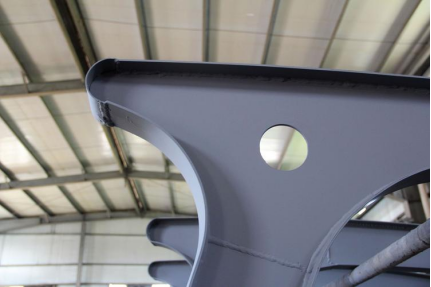
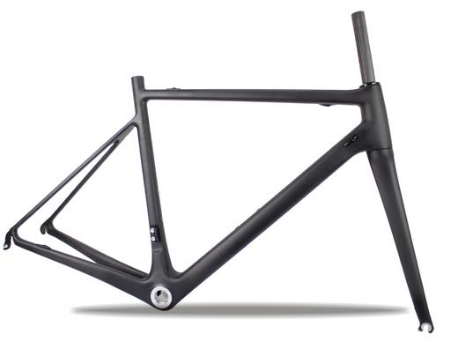
Applications of 3D Printing Alloy Spherical Titanium Powder
Bioengineering and pharmaceuticals: In biotechnology and pharmaceuticals, titanium alloy powder can be used to manufacture bioreactors, filters, and laboratory equipment. Its excellent corrosion resistance makes titanium alloy ideal for processing biological samples and pharmaceutical processes.
Petrochemical industry: Titanium alloy powder is also used in the petrochemical industry because it can resist the erosion of many corrosive chemicals. Titanium alloy can be used to manufacture key components such as reactors, storage tanks, pipelines, and valves.
Sports equipment: Titanium alloy powder is also used to manufacture high-end sports equipment, such as bicycle frames, golf clubs, snowboards, etc. Its lightweight and high-strength characteristics make these products both lightweight and durable.
Ship and Ocean Engineering: Titanium alloy powder is also used in shipbuilding and marine engineering because it can resist seawater erosion and corrosive environments. It can be used to manufacture ship components, offshore platform structures, and submarine pipelines.
Production Method of 3D Printing Alloy Spherical Titanium Powder
Gas Atomization Method
Principle: High-purity titanium or titanium alloy materials are melted at high temperatures to form a molten metal liquid. A high-pressure inert gas, such as argon, is then sprayed onto the molten metal at high speed. The gas’s strong shearing and impact forces break the molten metal into tiny droplets. These droplets cool and solidify rapidly in the gas atmosphere to form spherical titanium powder.
Plasma Rotating Electrode Process (PREP)
Principle: A consumable titanium alloy electrode is rotated at high speed in a plasma arc environment. The plasma arc melts the end of the rotating electrode, and the centrifugal force generated by the high-speed rotation causes the molten metal to be thrown out in the form of droplets. These droplets solidify in the air to form spherical titanium powder.
Chemical Vapor Deposition Method (CVD)
Principle: Titanium-containing gas sources, such as titanium tetrachloride (TiCl₄), are mixed with reducing gases, such as hydrogen (H₂), in a reaction chamber. Under high temperature and certain pressure conditions, chemical reactions occur on the surface of the substrate or in the gas phase, and titanium atoms are deposited and grow to form spherical titanium powder particles.
Company Profile
RBOSCHCO is a trusted global chemical material supplier & manufacturer with over 12-year-experience in providing super high-quality chemicals and nanomaterials, including boride powder, nitride powder, graphite powder, sulfide powder, 3D printing powder, etc.The company has a professional technical department and Quality Supervision Department, a well-equipped laboratory, and equipped with advanced testing equipment and after-sales customer service center.If you are looking for high-quality 3D Printing Alloy Spherical Titanium Powder, please feel free to contact us or click on the needed products to send an inquiry.

Storage Condition of 3D Printing Alloy Spherical Titanium Powder
1) Store in a dry environment at room temperature.
2) Avoid damp and high temperature.
3) Use immediately after opening the inner packing bag.
Payment Term
L/C, T/T, Western Union, Paypal, Credit Card etc.

Shipment Term
By sea, by air, by express, as customers request.
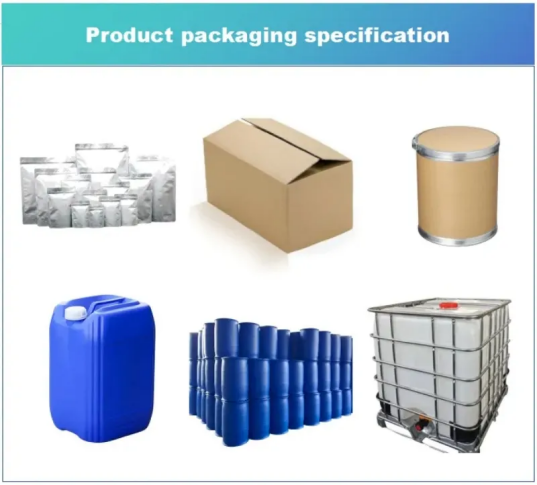
5 FAQs of 3D Printing Alloy Spherical Titanium Powder
Q1
Will components printed with titanium alloy powder deform in high-temperature environments?
Answer: Titanium alloy has good high-temperature stability, so its performance can be maintained in a certain high-temperature environment. However, excessive temperature may cause component deformation or failure, so it is necessary to choose appropriate titanium alloy powder and printing process according to specific application scenarios.
Q2
How does the particle size of titanium alloy powder affect 3D printing?
Answer: The particle size determines the flowability and packing density of the powder. Smaller granularity can improve resolution and surface quality during printing, but it may also increase printing difficulty and cost.
Q3
What are the future development prospects of titanium alloy powder printing?
Answer: With the continuous progress of 3D printing technology and the optimization of titanium alloy powder performance, the future development prospects of titanium alloy powder printing are promising. We can expect higher printing speeds, lower costs, and wider application areas, especially in the aerospace, medical, and automotive industries.
Q4
What 3D printing processes are suitable for titanium alloy powder?
Answer: Titanium alloy powder is suitable for powder bed melting (PBF) processes, such as selective laser melting (SLM) and electron beam melting (EBM). These processes can construct objects layer by layer through selective laser or electron beam melting.
Q5
Do components printed with titanium alloy powder require post-treatment?
Answer: Yes, titanium alloy powder printed components usually require post-treatment to eliminate residual stress, improve surface quality, or improve performance. Post-treatment may include heat treatment, grinding, sandblasting, etc.
REQUEST A QUOTE
RELATED PRODUCTS
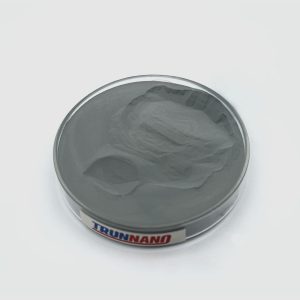
3D Printing Alloy Materials Custom K403 Metal Powder
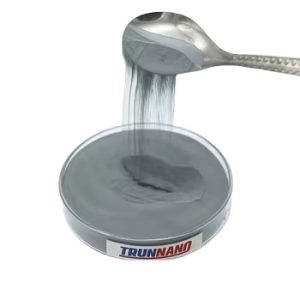
3D Printing Alloy Metal Materials Aluminum Based AlSi12 Metal Powder
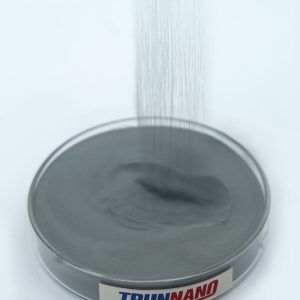
3D Printing Inconel 718 Powder Nickel Alloy Powder
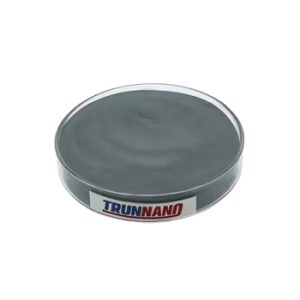
High Quality Spherical Nickel Powder Nickel Metal Powder

Nitinol Nickel Titanium Ni-Ti Alloy Powder
